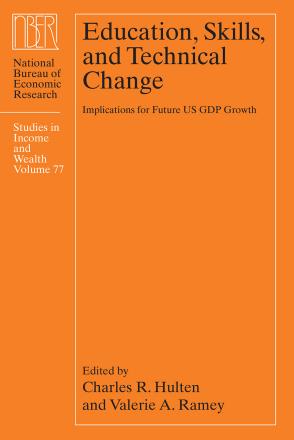The Importance of Education and Skill Development for Economic Growth in the Information Era

The neoclassical growth accounting model used by the BLS to sort out the contributions of the various sources of growth in the US economy accords a relatively small role to education. This result seems at variance with the revolution in information technology and the emergence of the “knowledge economy,” or with the increase in educational attainment and the growth in the wage premium for higher education. This paper revisits this result using an “old fashioned” activity analysis, rather than the neoclassical production function, as the technology underlying economic growth. An important feature of this activity-based technology is that labor and capital are strong complements, and both inputs are therefore necessary for the operation of an activity. The composition of the activities in operation at any point in time is thus a strong determinant of the demand for labor skills, and changes in the composition driven by technical innovation are a source of the increase in the demand for more complex skills documented in the literature. A key result of this paper is that the empirical sources-of-growth results reported by BLS could equally have been generated by the activity-analysis model. This allows the BLS results to be interpreted in a very different way, one that assigns a greater importance to labor skills and education.
-
Copy CitationCharles R. Hulten, Education, Skills, and Technical Change: Implications for Future US GDP Growth (University of Chicago Press, 2018), chap. 3, https://www.nber.org/books-and-chapters/education-skills-and-technical-change-implications-future-us-gdp-growth/importance-education-and-skill-development-economic-growth-information-era.Download Citation


